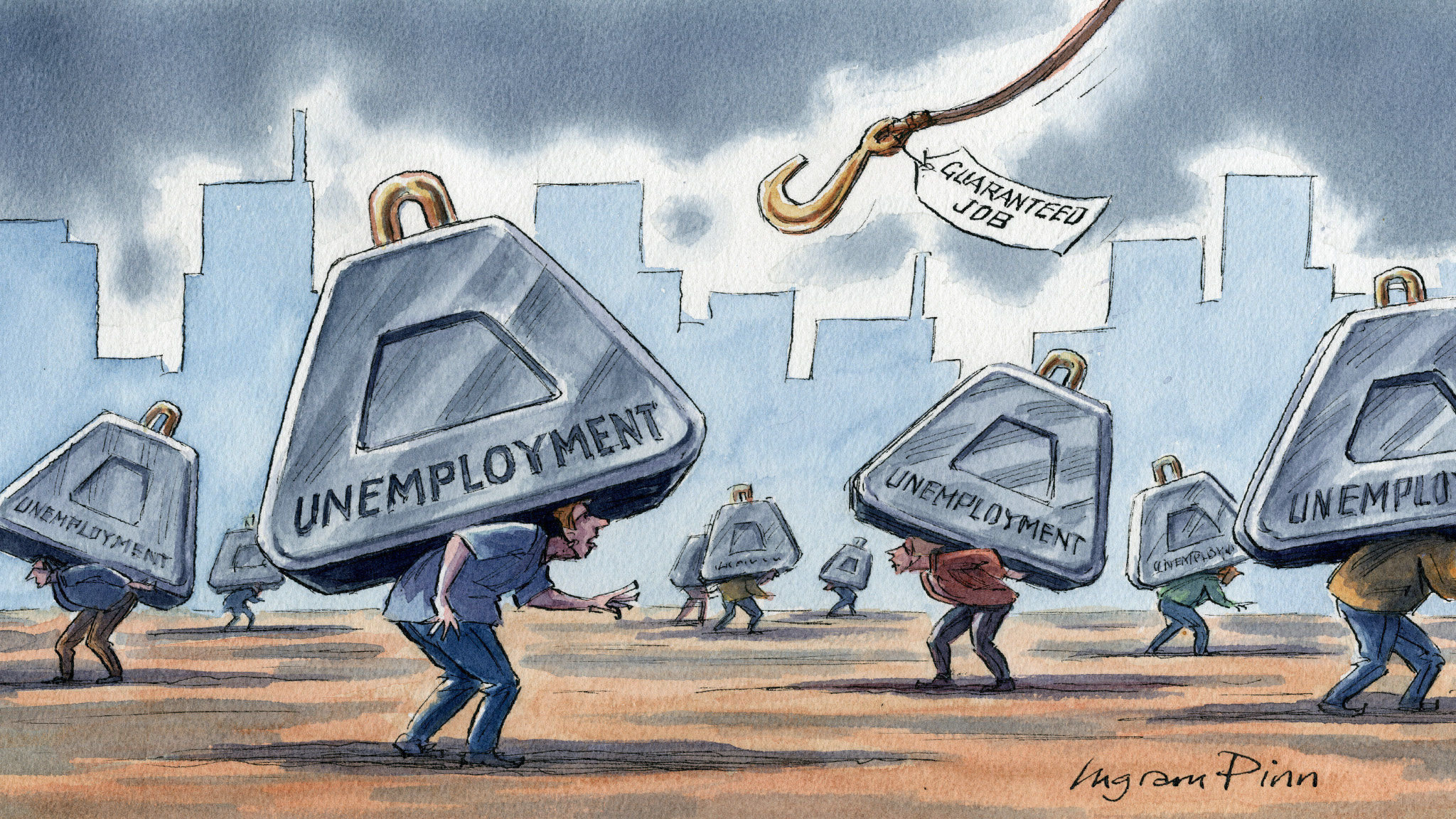
web_Unemployment burden
Nigeria’s unemployment rate has been estimated to top 40.6% in 2023 from 37.7% in the previous year and is expected to climb further to 40.6% in 2023. This is according to a recently released report by global professional service firm, KPMG titled: Global Economic Outlook.
The report noted that unemployment in Nigeria is expected to increase on the back of limited investment by the private sector, low industrialization, as well as slower than required economic growth.
The Nigerian section of the report, which was titled: “Challenging macroeconomic fundamentals in a transition period” was prepared by former Statistician-General of the NBS, now Chief Economist, KPMG in Nigeria, Dr. Oyeyemi Kale and Oluwole Adelokun, Associate Director, Strategy and Economics, KPMG in Nigeria.
Nigeria’s real GDP grew by 3.52% year over year in Q4 2022 compared to 2.25% printed in the previous quarter, with an annual growth rate of 3.1% for the year against 3.4% in 2021.
Nigeria’s unemployment has been trending upward over the years, reaching a record high of 33.3% in Q4 2020 according to the last NBS labor report, with over 23.1 million Nigerians out of jobs. This statistic is expected to worsen in recent times considering the ripple effect from the covid-19 pandemic, economic downturn, high inflation, and massive layoffs in the tech space amongst others.
An excerpt of the report reads, “Unemployment is expected to continue to be a major challenge in 2023 due to the limited investment by the private sector, low industrialization and slower than required economic growth and consequently the inability of the economy to absorb the 4-5 million new entrants into the Nigerian job market every year.”
“However, despite these aggressive rate hikes, inflation has remained stubbornly high and is predicted to remain above 20% in 2023 due to the persistence of the structural and policy issues,” the report reads.
In Q4 2022, Nigeria’s unemployment rate rose to 33.3% from 27.1% recorded in Q2 2020, representing the highest on record as of the period. The total labor force was estimated at 69.67 million, with only 30.57 million fully employed citizens.
The Bola Tinubu-led Federal Government has said there is a need to increase the country’s…
The Board of Directors of Zenith Bank Plc has announced the appointments of Mr. Adamu…
An Abuja school, Brickhall School, has been shut down for a week following the death of…
A Senior Advocate of Nigeria (SAN), Kunle Adegoke, has expressed his dismay over the recent…
A member of the House of Representatives, Ahmed Jaha, has asked the federal government to hire…
Nigerians, the organised labour, Civil Society Organisations and power sector experts have knocked the Nigerian…